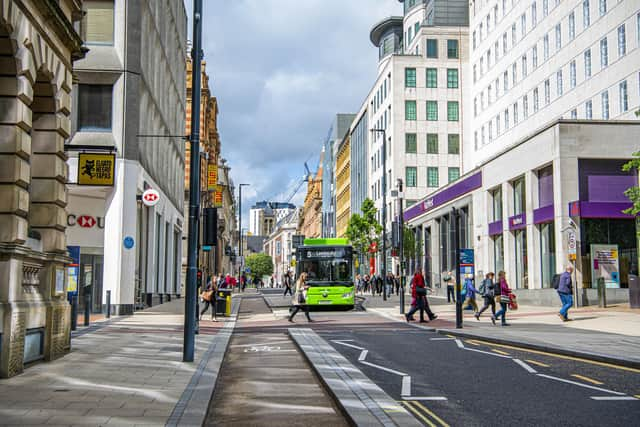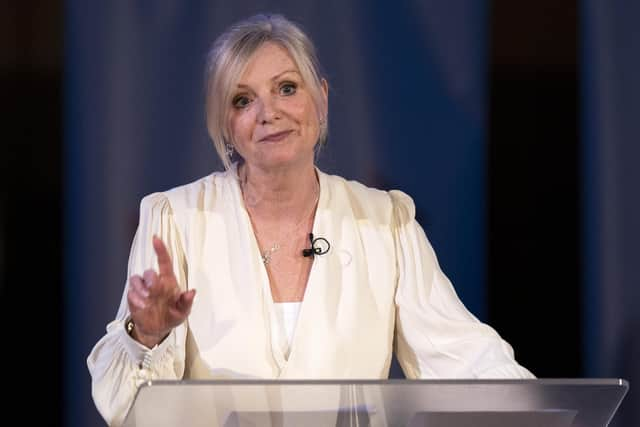Bus operators push back against plan to bring services under public control
Mayor Tracy Brabin, inset, is looking to deliver a key election pledge and launch a franchising bus scheme in 2027, insisting it would make services across the region more reliable and more affordable.
People are now being urged to have their say on the plan during a public consultation.
Advertisement
Hide AdAdvertisement
Hide AdIt would see West Yorkshire Combined Authority (WYCA) – the taxpayer-funded organisation Ms Brabin runs – take full control of the bus network so it can make decisions about routes, services and fares.


WYCA said it would have to spend around £20m on the staff and facilities it needs to run the network and £70m-£95m on buying and upgrading bus depots.
However, private operators have proposed another approach to franchising, which is known as an “enhanced partnership plus”.
It would allow them to continue running services but work in partnership with WYCA to make decisions about routes, services and fares.
Advertisement
Hide AdAdvertisement
Hide AdThe operators said this option would help Ms Brabin achieve her objectives – of bus making services cheaper, greener and more reliable – but also be far quicker and cheaper than franchising.


A spokesman said: “In partnership with the combined authority, we’ve jointly rolled out the Mayor’s Fares initiative – capping single trips at £2 – made travel for young people under 19 simpler and fairer on any bus and led the way in introducing a greener fleet of buses.
“All of this has been delivered in partnership, which is what makes enhanced partnership plus the stronger and less risky choice to guarantee the best bus service for West Yorkshire.”
Ms Brabin has previously said private operators are “focused on satisfying shareholders” and have driven passengers away in recent years, by running unreliable services and cutting routes which do not generate a significant profit.
Advertisement
Hide AdAdvertisement
Hide AdThe operators have axed dozens of services in recent years, claiming they have been struggling to cover their costs since passenger numbers plummeted during the pandemic.
They have also become heavily reliant on taxpayer-funded subsidies, which pay for around a fifth of the services they run in West Yorkshire.
The Government has provided operators outside London with more than £3.5bn to help them protect bus services during the pandemic and cap single fares at £2.
In West Yorkshire, Ms Brabin has been working to improve services and increase passenger numbers, since securing almost £70m of Government funding for an ambitious bus service improvement plan.
Advertisement
Hide AdAdvertisement
Hide AdAround £30m is due to be spent on upgrading the bus network and introducing new services on a number of routes, to make them more frequent and more reliable.
As part of the bus service improvement plan, operators have also capped single fares at £2 and day passes at £4.50 since September 2022, in exchange for around £1.2m of subsidies each month.